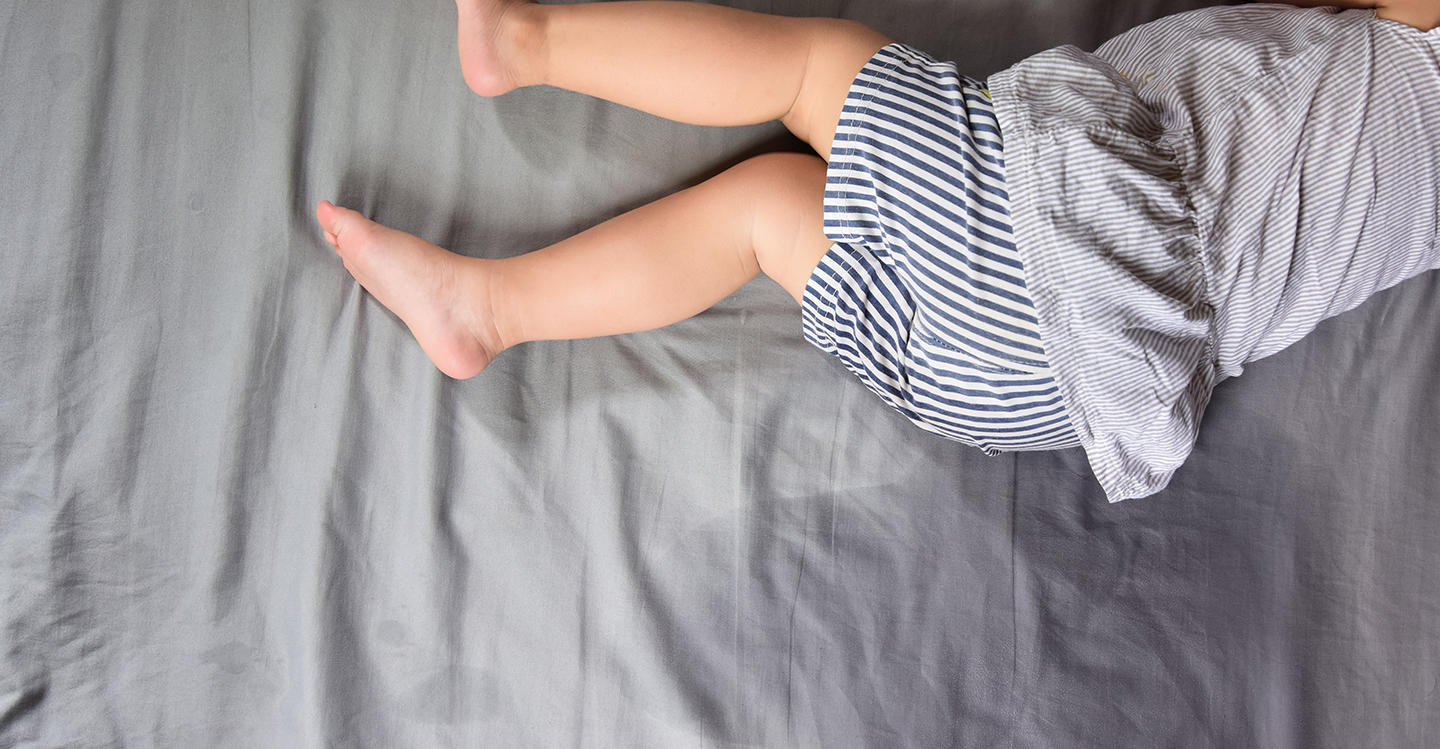Bedwetting is common in many school-aged children. Also called nocturnal enuresis, bedwetting occurs when a child who is toilet-trained wets the bed by accident. While it’s not a serious medical condition, bedwetting can have significant effects on a child’s self-esteem and can cause stress within the family. It is extremely important to remain patient and not embarrass your child should they wet the bed, as this can cause shame and anxiety.
In most instances, bedwetting will actually resolve itself. Almost a third of four-year-olds wet the bed, but by the time they reach the age of six only one in ten children will. Fortunately, bedwetting can be fixed through simple management strategies. The first step is to understand the possible causes.
What causes bedwetting?
Bedwetting can occur for many reasons, including:- a genetic predisposition
- a small bladder capacity
- a child being a deep sleeper
- active kidneys
- constipation
- ADHD.
Treatment for bedwetting
It’s important to note that there is no definitive age when children stop wetting the bed, but by the ages of six to seven, most children start to show concern about the issue. If this is still happening regularly, take your child to the GP so that you can obtain a treatment plan and rule out a more concerning cause. Common treatments for bedwetting include:- Motivation – it can help to keep a chart of wet and dry nights to motivate your child. Your child should make the chart themselves, and choose what stickers to use to complete it (they should never feel punished or that they have let you down for having a wet night). Charts by themselves usually have little success, but are beneficial when used with other treatments.
- Managing fluids – limiting a child’s fluid intake after dinner will reduce their urine production at night, making them less likely to wet the bed.
- Bedwetting alarms – these are considered the most successful first step in the treatment of bedwetting. Children using bedwetting alarms are less likely to relapse than those taking medications. They work by training your child to wake up the instant they start to wet the bed through an alarm mechanism. This helps your child to recognise when their bladder is full and teaches them when to wake up and go to the toilet.
- Night time waking (lifting) – lifting and waking can stop the issue in the short-term, but it isn’t a long-term solution. This method involves a parent lifting the child out of bed when they’re asleep, waking them and taking them to the toilet to do a wee.
- Medications – your doctor can advise you if medication is a suitable treatment for your child. There are a few medications doctors can prescribe which work to reduce your child’s urine production at night.



